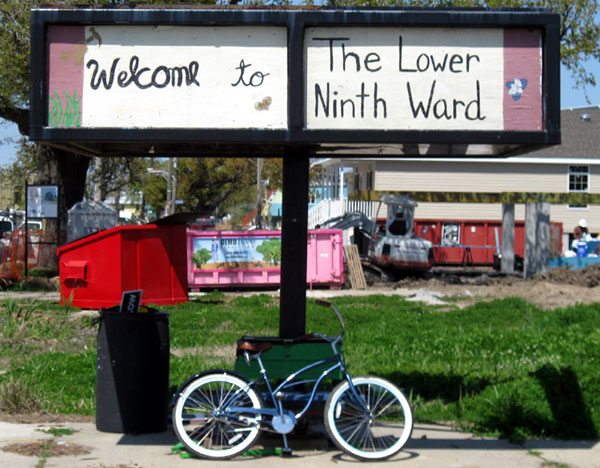
April 13, 2018; New York Times
The definition of “sustainable travel” has broadened considerably in recent years, as noted in the New York Times. Once linked with the concept of eco-friendly travel—visiting remote, often fragile places and making every effort to minimize one’s footprint as a visitor—sustainable travel is now as likely to consider the social impact of being in a place as it is the physical impact. And both for-profit tour operators and nonprofit organizations are finding creative ways to engage tourists with the people as well as the social and economic realities of well-known and previously unheard-of travel destinations.
Sometimes there’s a charitable or “voluntourism” component to the experience being offered; in many cases, the goal is to ensure that money spent by travelers benefits the local economy. Why does this matter? As noted in the Times article:
Social impact travel aims to ensure money spent on a tour or a trip stays in the community. A vital source of income to developing nations, travel is the first or second source of export earnings in 20 of the 48 least developed countries, according to the World Tourism Organization, yet a 2013 report from the organization noted that just $5 of every $100 spent in a developing country stayed in that destination.
The World Tourism Organization is a United Nations agency that promotes “responsible, sustainable and universally accessible tourism.” The organization has identified six priorities:
Sign up for our free newsletters
Subscribe to NPQ's newsletters to have our top stories delivered directly to your inbox.
By signing up, you agree to our privacy policy and terms of use, and to receive messages from NPQ and our partners.
- Mainstreaming tourism in the global agenda
- Improving tourism competitiveness
- Promoting sustainable tourism development
- Advancing tourism’s contribution to poverty reduction and development
- Fostering knowledge, education and capacity building
- Building partnerships
In each of the travel examples cited in the Times article, having tourists connect on a human level with people who live in the places they visit is essential. Some of these experiences last for a few hours, others for weeks. Some are in developing nations, others are not. Many involve hands-on activities, while others simply emphasize making intentional travel choices—like where to stay, shop or eat, even on a business trip—in order to benefit the local economy.
So, if you are still planning your summer vacation, here are some options you might want to consider:
- The Meaningful Travel Map of Jordan, highlights 12 social enterprises, including a women’s weaving group and a Bedouin camp. (It might also be worth considering what a meaningful travel map of your community would look like.)
- Ninth Ward Rebirth Bike Tours in New Orleans donates $5 of its per-person $65 fee to local charities in a community still struggling to recover from Hurricane Katrina.
- &Beyond is best known for luxury African safaris, but recently has added trips that emphasize philanthropy and conservation.
- Virginia Watermen Heritage Tours offers oyster hauling and crabbing day trips that provide a secondary source of income to working fishermen in a string of coastal communities.
- Village Ways operates in Bhutan, India, and Nepal with trips that focus on village life. One walking tour includes spending two days working with migratory shepherds in the Indian Himalayas, with the rest of the trip being walks from one guesthouse to the next.
Here are several additional resources—mostly from the Times article, but with a few bonus ideas that might appeal to NPQ readers—for anyone looking to learn more about sustainable, social-impact travel:
- Airbnb Experiences encourage visitors to connect with locals while staying in Airbnb lodgings; the company offers 200 social-impact experiences in locations around the world, often with activists and community builders as tour guides.
- Giving Way is a platform that links prospective volunteer travelers directly with nearly 1,900 nongovernmental agencies, making voluntourism experiences more accessible to those with modest travel budgets.
- Impact Travel Alliance is a nonprofit focused on education and advocacy around sustainable tourism.
- Kind Traveler is a public benefit corporation that describes itself as “the first socially conscious ‘Give + Get’ hotel booking platform to empower travelers to become a force for good.” Travelers can receive discounts in more than 30 destinations for making a $10 nightly donation to a local charity or to a charity listed on the platform.
- The Landmark Trust makes heritage sites, mostly in Britain, available for vacation stays; revenue from the rentals goes toward maintaining these properties and saving and restoring additional sites.
- Untours’ business model emphasizes authentic vacations in Europe, with tourists staying in apartments independently, but with local staff support available. The other side of the operation, the Untours Foundation, invests all of the travel company’s profits into “providing low-interest loans to businesses around the world to create work, housing, and Fair Trade where they are needed most.”
- Vacation With An Artist offers “art-hungry travelers” mini-apprenticeships with artists, designers, and creatives around the world—while supporting the host artists. Examples include working with a street artist in Buenos Aires or a bamboo bicycle maker in Bangalore.
- Visit.org offers “immersive day activities” with a social-impact component, both in-person and virtually.
Bon voyage!—Eileen Cunniffe













